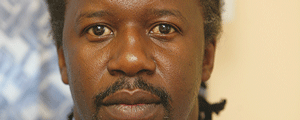
All too often we are told of “the gains of independence” and how some among us vow to fight to prevent them from being reversed.
Report by Brian Mangwende
But, what are these gains of independence and who really has gained them? The country has moved from colonial settler rule to black rule, fair enough, but has our independence translated into those enduring values, that make for a more just, more equal, more free, more caring and more prosperous nation? Has it, in anyway added real value to our social fabric and our dignity, as a people or, has it only benefited a few? It is important that Zimbabweans begin to look in the mirror introspectively, engage in these conversations and interrogate.
Are we better off, in essence, as a people today than before? Would we really say that our independence has been some panacea of some sort, and if so, in what measure? The answer is “yes” and “no”.
Yes, we are no longer slaves of foreign nationals, but have we now got the freedom that we yearned for or have we simply moved from a cage into an aviary? One thing is for sure, class struggles have continued unabated and the ruling class and those well connected to the patronage system are having a field day. They have amassed wealth and are living in clover. They have amassed more wealth in the last decade than the colonisers in the 90 years of colonisation.
These are the people who are most vocal about “the gains of independence”.
They live lavish lifestyles in their large cathedral or basilica-like homes and swank and swagger in their opulence like Hollywood superstars. These are the people who have reversed and redirected the gains of independence to themselves at the expense of the people. The legacy of the colonial and post-colonial economy is in their pockets.
Our actions have not lived up to our best intentions on account of poor leadership.
- Chamisa under fire over US$120K donation
- Mavhunga puts DeMbare into Chibuku quarterfinals
- Pension funds bet on Cabora Bassa oilfields
- Councils defy govt fire tender directive
Keep Reading
Yes, Zimbabwe has had a serious leadership deficit because of undeniable corruption and other vices hemorrhaging our economy.
This is a country which, rightly, should have been pioneering modern development and well in the forefront of helping solve regional and continental conflicts, but because of its genus of retrogressive, cynical and toxic politics, it has gone back several decades and reversed all the gains of independence in so far as the masses are concerned, and in the process, squandered the future of generations and generations of its young.
When are we going to wake up from this slumber and start building a nation of hope, and not despair. . . a nation where our hardworking people can live up to their full potential and our children in the Diaspora can come back and help build the nation?
Recently in Mozambique, President Ian Khama quite aptly questioned why Zimbabwe was still stark in the groove of a historical narrative of a war that ended more than 30 years ago! Yes, we fought for our independence . . . who didn’t? All formerly colonised countries fought for their independence, in one way or another, but must we constantly live in that historical narrative to the detriment of economic and social development? Of course, we all know that this war baggage is constantly brought up to validate some long phased-out political dinosaurs who seek to remain relevant in the fast-changing world of modern politics.
This is why some had no compunction whatsoever in brazenly setting up a whole President of a country for ridicule among his peers in Mozambique recently by giving him wrong advice. Instead of advising the President to rise above petty party politics and do what is in the best interest of the nation, they saw it fit to expose him to ridicule.
What Zimbabwe needs now is an immediate, major tectonic shift in political culture, in order to move away from the current superficial and destructive obsession. The further we move away from the conflicts of the past, the more we consolidate our victory over them. Believe me. . .!











